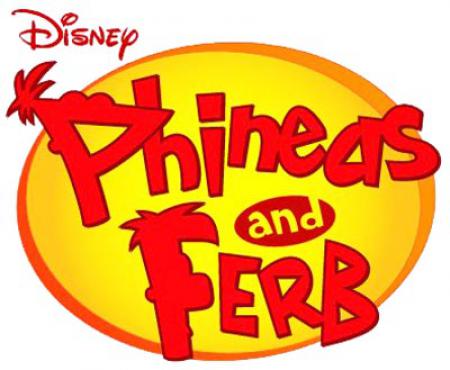Serendip is an independent site partnering with faculty at multiple colleges and universities around the world. Happy exploring!

TW: Discussion of rape) On Possibly Breaking The Bubble of Silence: How Our Community Discussions of Rape Are Harming Us
I should have written this paper a long time ago, but the truth is that I was scared to approach the topic and felt somewhat unqualified in my position as something of an outsider in the sense that I don’t live on campus. However, as we’ve come through this semester together, and since we’ve discussed “Half The Sky” extensively, and the way that rape gets addressed on campus briefly, (thank you to rayj for providing some really great links and some really great insight) I’ve come to understand that hesitating to speak is part of Bryn Mawr’s problem. From what I have read and heard, we, as a community, rarely talk about rape, and when we do, we do it in a very particular way. In our collective mind, and in the school’s covert marketing message, rape is something that happens when a strange male attacker (perhaps that fabled “suspicious male on campus”) assaults a woman.

Masculinity in Jimmy Corrigan
In the beginning of the comic book, The Adventures of Jimmy Corrigan: The Smartest Kid on Earth, Chris Ware wrote a series of tests and notes for the reader. An exam question asks for the gender of the reader. If the reader is female, she is to immediately put down the book (Ware 1). This implies that there is something about the experiences within the comic book that are so inherently gendered male that a female could not possibly understand them. She may as well never read the book. Jimmy Corrigan examines masculinity and what it is like to constantly battle the social pressure to live up to an ideal masculine identity.
The Ethics of Reproductive Rights
About a week ago I came across a recent article titled “Uzbekistan’s policy of secretly sterilizing women” (1) and other than the holocaust, I had never heard about governments running forced sterilization programs. After looking at the Wikipedia page (2) I learned that it’s been happening since the early 1900’s in many countries, mainly for the purpose of eugenics. Forced systematic sterilization is now considered a crime against humanity by the International Criminal Court, but it is still happening in Uzbekistan. Many human rights organizations are outraged, and there is pressure on United States, in particular Secretary of State, Hilary Clinton to place sanctions and cut aid to Uzbekistan because of these human rights violations. If you want to sign a petition asking Clinton to ‘end Islam Karimov’s (Uzbekistan’s president) reign and stop the brutal attack on women’ go to (3).

Science in Science Fiction: A Proposal
My tongue is “jumbled and jangled”1. Growing up speaking Arabic, English, and French, I am most self-expressive juggling between all three, casually in conversation. I relate feelings and emotions with specific language expressions that are meaningless if not incomprehensible when translated. The importance in the phonetics in the Arabic language allows me to translate my emotions in the stress of the sounds in words. Saying “stupid” in Arabic is not only the same word for “ass” but also has an “h” sound that resonates from the roof of your mouth, as if having a bundle of red chili peppers scorching one’s throat while shouting out a sharp “HHH’OT!”. I cannot however participate in a serious, intellectual discussion in Arabic but rather speak English, my language of education, from which I have learned the big words and forms for argumentation. First learning French from TV or overheard conversations between my parents, I speak it to communicate my work and education to those who do not understand English. All three languages have become inevitable pieces to my language and cultural puzzle that intertwine to translate my thoughts and ideas to others.

Apostles of Mercy: Aliens and Agency
A note on citations: The War of the Worlds is in the public domain; as such, I read it online, in a digital edition that lacked page numbers. This makes citation somewhat tricky. I have chosen to cite by chapter number, as consequence, both for The War of the Worlds and (for the sake of consistency) for Slaughterhouse Five. Thus, in Slaughterhouse Five, parenthetical citations are author and chapter number (Vonnegut 1) and in The War of the Worlds parenthetical citations are author, book number, and then chapter number (Wells I, 1). If this is unacceptable, I can change it. However, I find that I rather like this form of citation. Considering the differences in pagination in various editions of the same book, it does not make things much more difficult to reference than page numbers would; either method would involve some flipping through pages to find the quotation cited.

Conservative Liberals
My first project this year was stepping back and looking at the changing definition of a "woman" at Bryn Mawr College requiring admission policies. I traced the change from the opening of the college to its recent definition of a woman. In my second webevent I played with language and its limitations using the game Taboo. I learned that it is because of the limitations of language we fail to fully express ourselves and it is this failure that leads to curiousity and learning.
What are the limitations of language at Bryn Mawr?
Bryn Mawr has taboo topics.
Topics that are not discussed will not change.
Change is necessary for the existing definition of women at Bryn Mawr.
If we discuss women, will it lead to change?
Is change what we need?
I talked to a few friends to try and figure out what topics are taboo at Bryn Mawr. I had several suggestions and chose some to use as examples:
A magical adventure with reality
The Oxford English Dictionary defines the genre of magic realism as a “literary style in which realistic techniques such as naturalistic detail, narrative, etc., are similarly combined with surreal or dreamlike elements (www.oed.com).” This is clearly not a genre we looked at in class, and yet it is not all that different from other genres we have studied. For example, the OED defines science fiction as “imaginative fiction based on postulated scientific discoveries or spectacular environmental changes, freq. set in the future or on other planets and involving space or time travel (www.oed.com).” If magic realism is the combination of realistic and surreal elements and science fiction of fictional and scientific elements it is not unfounded to say that these two genres are cut of the same cloth.

Wisdom, Serenity and Free Will
In Slaughterhouse-5, Vonnegut presents us with Billy Pilgrim, a man who was subject to all of war’s physical destruction and mental hollowing. Throughout the novel, Pilgrim wonders through in acceptance of all of the situations that are presented to him. He readily allows himself to be kidnapped by Aliens, he accepts when he will die and he accepts that he is in war. Despite the main character’s acquiescence, Vonnegut displays the Serenity prayer in the novel, a mantra of free will:
God grant me the serenity to accept the things I cannot change, courage to change the things I can, and the wisdom always to tell the difference.

Does Billy (or do any of us) have the ability to follow this advice? The Trafalmadorians only follow the first phrase, acceptance, but Earthlings believe that we have the agency in all of these phrases. Is Vonnegut suggesting that Billy does have free will and that we can choose not to have war?
To explore this theme, I’d like to look at the contrast between the Trafalmadorian view of agency versus the Earthling view. The Trafalmadorians believe that the idea of free will is exclusive to those on Earth:

Phineas and Ferb: A feminist children's show?
Phineas and Ferb is a show on the Disney Channel about the summer exploits of a pair of stepbrothers. Phineas and Ferb are boy geniuses who can create literally anything they imagine in the convenient time span of about one episode. Of course, before the episode is over, there is frequently some unexpected consequence that teaches the characters, usually Candace, their older sister, a valuable life lesson. The secondary plot concerning Perry the Platypus, the family pet who is an undercover secret agent and his arch-nemesis the evil Doctor Doofenschmirtz, who can also create nearly any contraption that he can imagine with the intention to enact revenge or to take over the tri-state area. Doctor Doofenschmirtz’s machines nearly always malfunction and helpfully dispose of all evidence of Phineas and Ferb’s inventions.




